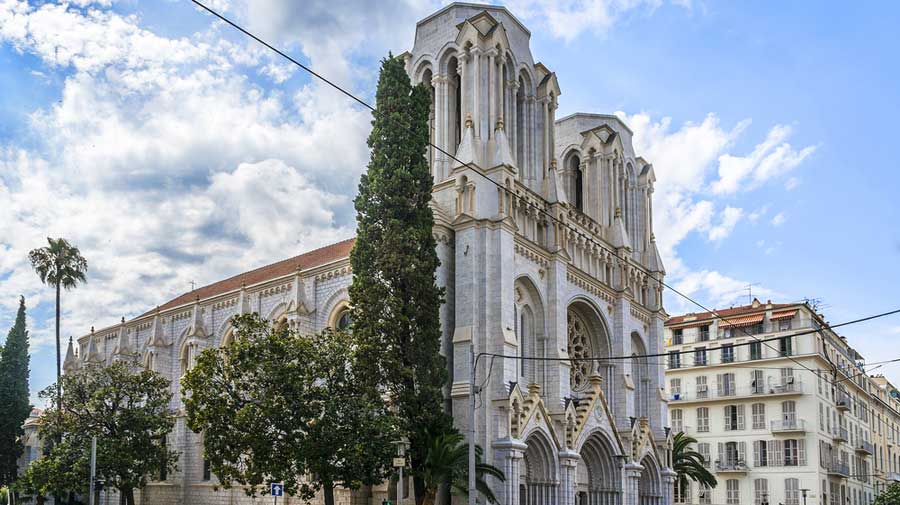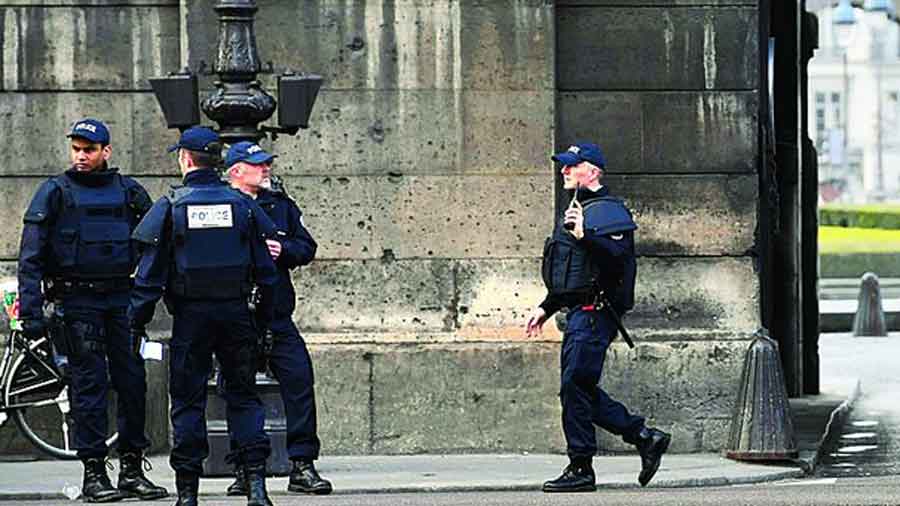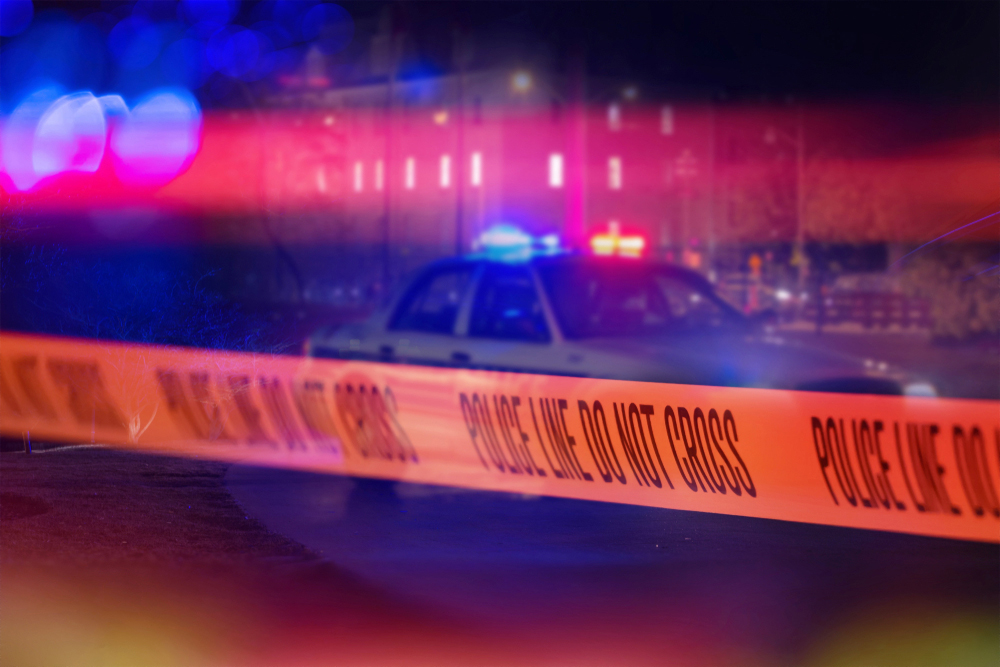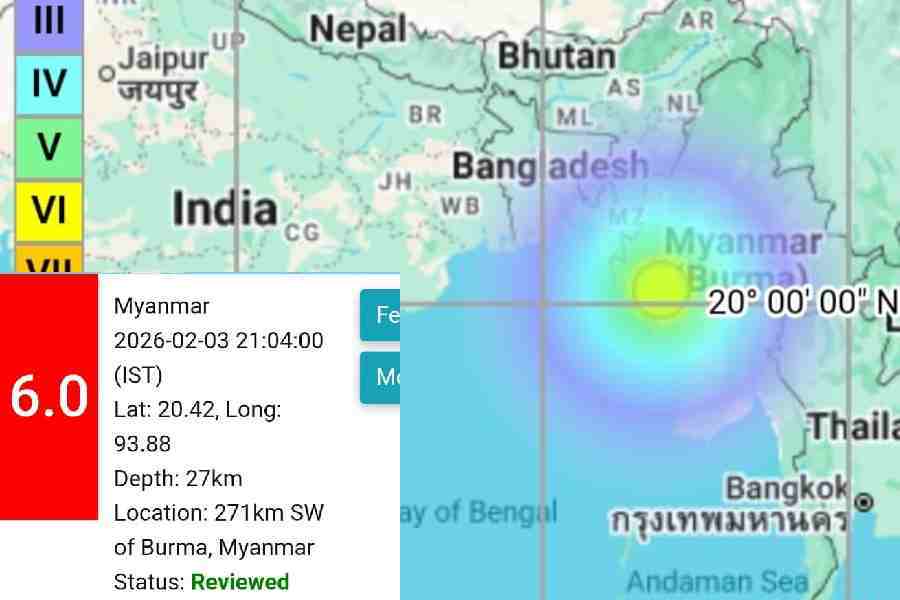An assailant carrying a knife entered a towering neo-Gothic basilica in the southern French city of Nice on Thursday morning, beheaded a woman and killed two others.
The murders further inflamed tensions in a country already on edge over the beheading of a schoolteacher less than two weeks ago.
A defiant President Emmanuel Macron, declaring that France had been subject to an Islamist terrorist attack, said he would deploy thousands more soldiers to protect key French sites, such as places of worship and schools.
Speaking from the scene, he said France had been attacked “over our values, for our taste for freedom, for the ability on our soil to have freedom of belief”.
“And I say it with lots of clarity again today: we will not give any ground,” Macron added.
Thursday’s attack — on the birthday of the Prophet Muhammad — comes at a time of growing Muslim anger at France’s defence of the right to publish cartoons. Protesters have denounced France in street rallies in several Muslim-majority countries.
The atrocity in Nice was quickly followed by two similar events — one of them featuring a knife-wielding assailant outside a French consulate in Saudi Arabia — though it was not immediately clear whether the events were coordinated.
The mayor of Nice, Christian Estrosi, told reporters on Thursday that a suspect, who has not been identified, was arrested after being shot and wounded by the police.
The suspect “kept repeating ‘Allahu Akbar’ in front of us even though he was sedated”, Estrosi said, adding this left “no doubt” about the motivation behind the attack.
“There is a woman who quite clearly was attacked with the same modus operandi as Samuel Paty,” the mayor said, referring to the teacher who was killed, suggesting that the latest victim was also decapitated.
Around 9am (1.30pm India time), the assailant entered the church and slit the throat of the sexton, beheaded an elderly woman and badly wounded a third woman, according to a police source.
Two of the victims were killed in the church itself, while the third died after taking refuge in a nearby café.
Not long after the attack in Nice, a man who had threatened bystanders with a handgun was shot and killed by the police in the southern city of Avignon, according to local news reports, though it was not clear whether the episode was terrorism-related.
France’s Le Figaro newspaper quoted a prosecution source as saying the man was undergoing psychiatric treatment, and that they did not believe there was a terrorism motive.
At the French consulate in the Saudi city of Jeddah, a suspect was quickly arrested after a separate knife attack that wounded a security guard.
French Prime Minister Jean Castex quickly announced that the authorities were placing the country on its highest terrorism threat level, with heightened security at places of worship.
Leaders across the political spectrum condemned the attack, as did French Muslim representatives.
Mohammed Moussaoui, president of the French Council of Muslim Faith, asked in a Twitter post that French Muslims cancel all Mawlid festivities, which celebrate the birthday of the Prophet Muhammad, “as a sign of mourning and solidarity with the victims and their loved ones”.
The killings in Nice come at an extremely sensitive time for France, which is still shaken by the beheading of the teacher, Paty, and is about to enter a month-long lockdown to slow the spread of the coronavirus.
Since Paty’s killing by a young Muslim man, offended that the teacher had shown cartoons of the Prophet Muhammad in a class on free speech, the French authorities have undertaken a broad crackdown against people they characterise as Muslim extremists in France.
They have conducted dozens of raids, temporarily closed a major mosque and disbanded a Muslim aid group that the authorities have accused of “advocating radical Islam” and hate speech.
Those measures have found widespread support in a nation still traumatised by Islamic State-inspired terrorist attacks in recent years — including two that killed a total of more than 200 people.
But President Macron’s vow that France would protect the right to caricature the Prophet has drawn harsh criticism in the Muslim world.
And the tone of some of Macron’s ministers — one of them said he objected to kosher or halal aisles in supermarkets — has left the country’s Muslim population of about six million feeling increasingly alienated.
While it is not yet clear whether Thursday’s attack was carried out in response to the government’s measures, it immediately fortified calls among the French authorities for even tougher efforts to combat Islamist extremism in ways that are almost certain to deepen the polarisation of the country.
Macron himself has vowed to crack down on what he called “Islamist separatism” with a range of measures aimed at countering extremism within the Muslim community.
The measures include placing stringent limits on home-schooling and increasing scrutiny of religious schools, making associations that solicit public funds sign a “charter” on secularism, and phasing out the widespread practice of bringing over foreign imams to work in France while investing in home-based training of imams.
New York Times News Service and Reuters












